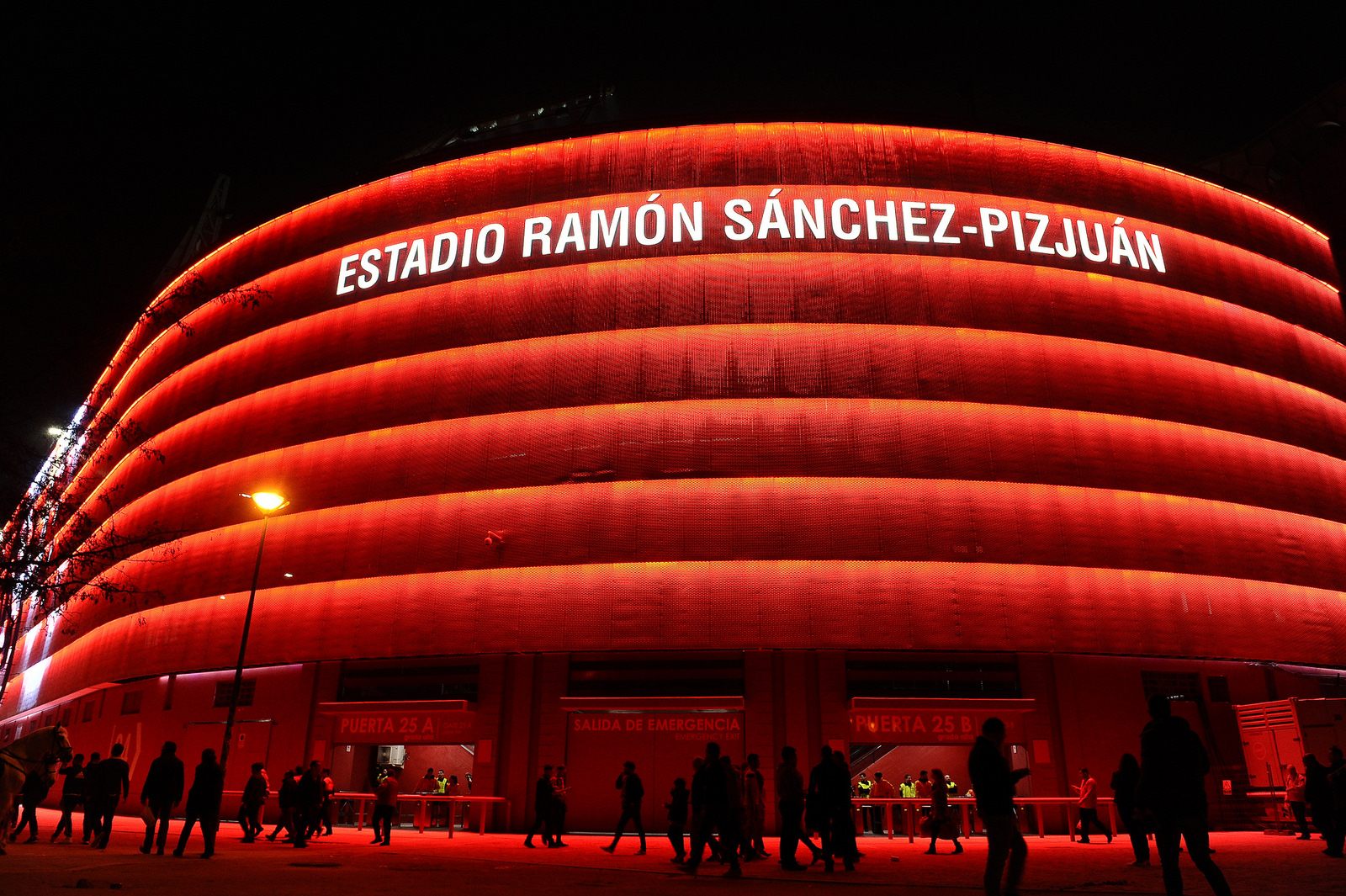
Estadio Ramón Sánchez Pizjuán (La Bombonera de Nervión)
Scorecard. Value 3.5. Facilities 4.0. Atmosphere 4.5. How we rank things to do. Home to Seville's popular soccer club, Ramón Sánchez-Pizjuán stadium offers an exciting European fútbol.
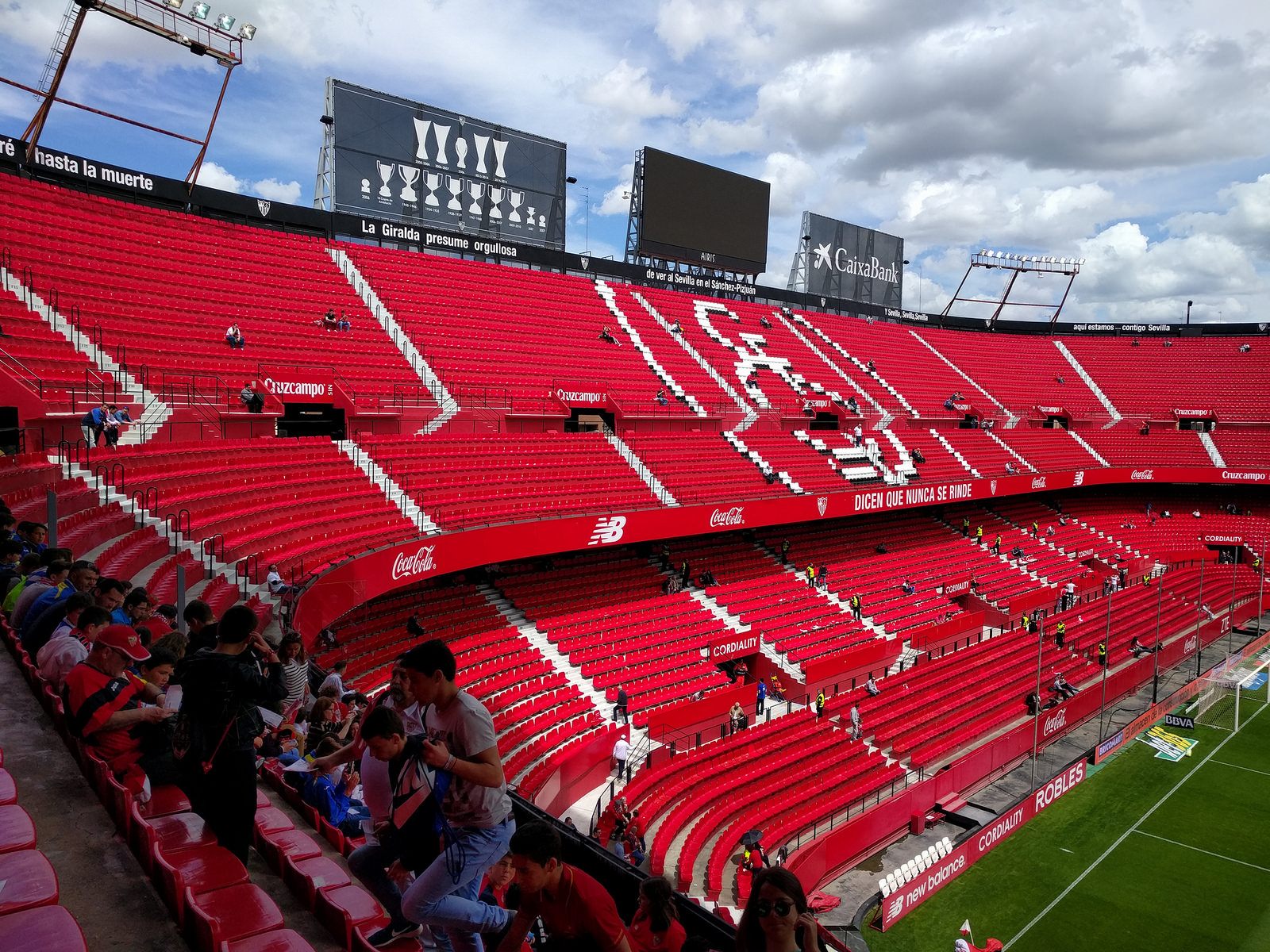
Estadio Ramón Sánchez Pizjuán (La Bombonera de Nervión)
How to get to Estadio Ramon Sanchez Pizjuan. Estadio Ramón Sánchez Pizjuán is located in central Seville at walking distance from the city centre and the main railway station. The walk from the cathedral in Seville's historic centre (located west of the stadium) can be made in half an hour. From the main railway station 10 minutes should.

El público podría regresar al Ramón SánchezPizjuán antes de final de año
El Estadio Ramón Sánchez-Pizjuán es un recinto deportivo propiedad del Sevilla Fútbol Club, ubicado en pleno barrio de Nervión de Sevilla, España. Se inauguró el 7 de septiembre de 1958 y su aforo actualmente es de 43.864 espectadores. El nombre del estadio es en homenaje al ilustre expresidente del club, Ramón Sánchez-Pizjuán para.
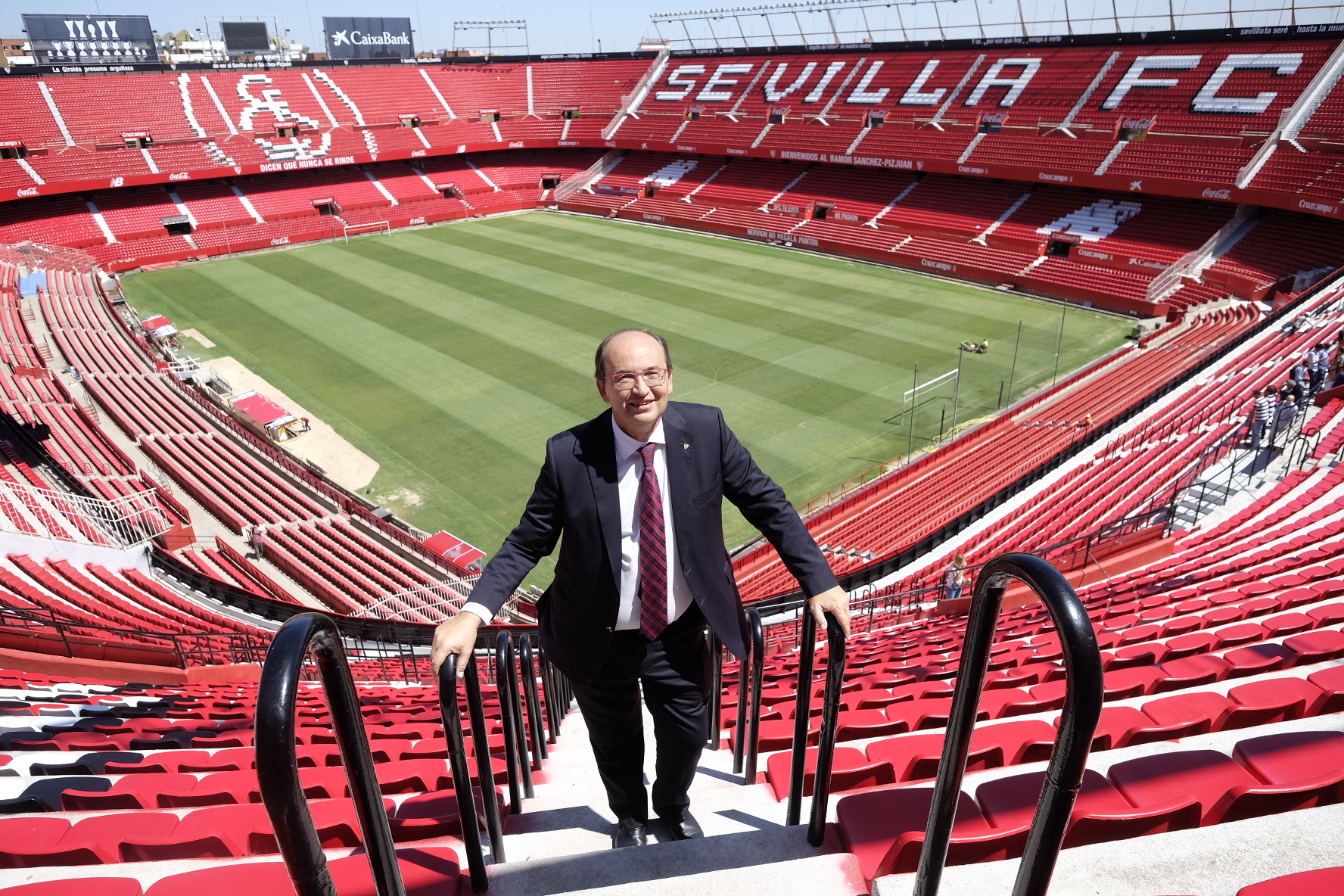
EL NUEVO RAMÓN SÁNCHEZPIZJUÁN Sevilla FC
ESTADIO RAMÓN SÁNCHEZ-PIZJUÁN. Inaugurado el 7 de septiembre de 1958 en partido amistoso frente al Real Jaén, su construcción respondió a las nuevas exigencias del fútbol, pues se requerían comodidades y capacidades que el vetusto campo de Nervión no podía satisfacer. La idea de su construcción se había planteado dos décadas antes.
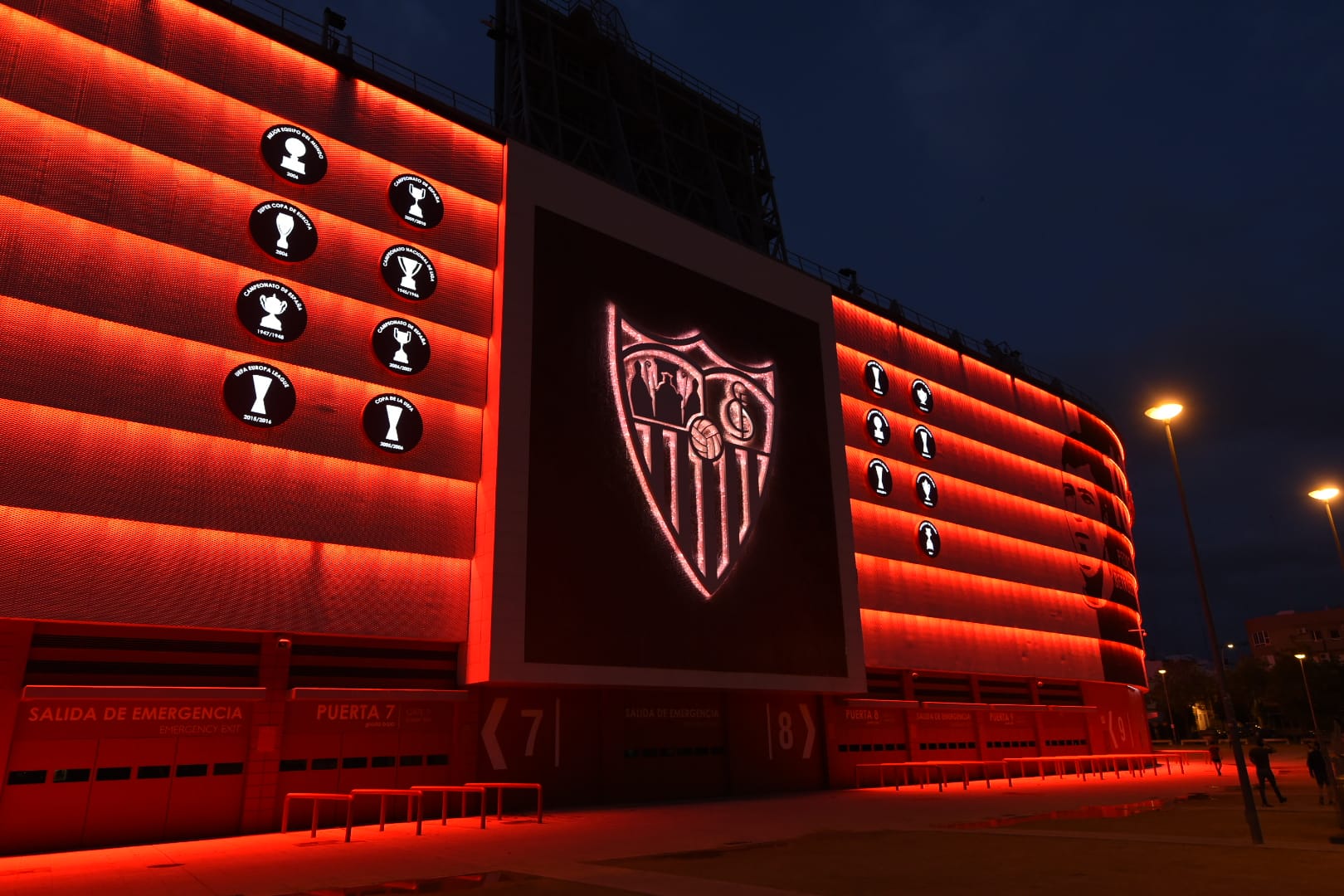
EL RAMÓN SÁNCHEZPIZJUÁN REVIVE LA NOCHE MÁGICA DE EINDHOVEN DE HACE CATORCE AÑOS SEVILLA FC
The capacity of the Ramon Sanchez Pizjuan is currently at just under 44,000, but the new ground would increase that by 11,000 to 55,000, and also add a roof to enclose the ground. Currently only part of the stadium is covered. The plan is for the current ground to retain the outer shell and their iconic mosaic wall.
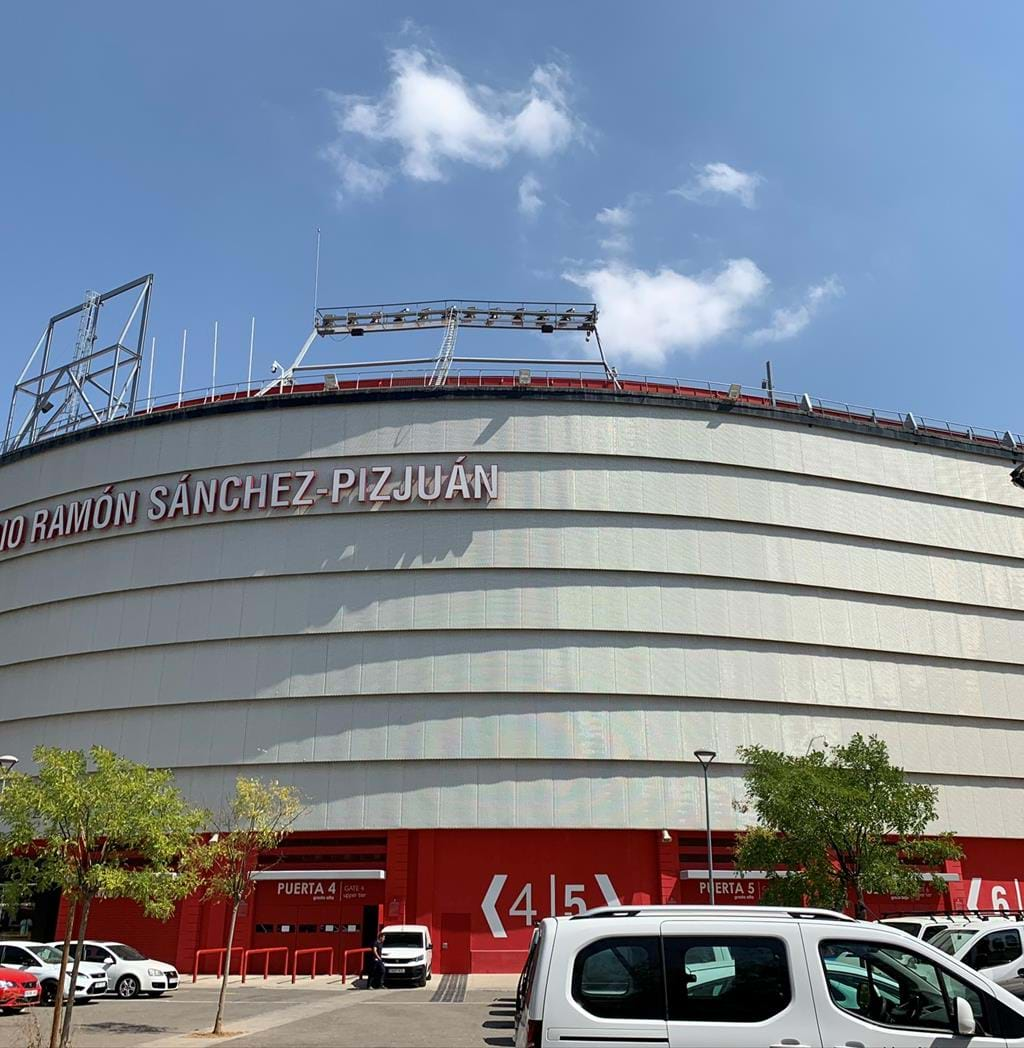
Ramon SanchezPizjuan the home of Sevilla Around The Grounds
Ramón Sánchez-Pizjuán held the office of Chairman at the time and was the primary proponent of the project. In 1954, Sevilla FC held a contest for construction ideas. The winner was Manuel Muñoz Monasterio, who had built the Santiago Bernabeu and Mestalla years before. His proposal - eventually approved - consisted of a stadium with a.
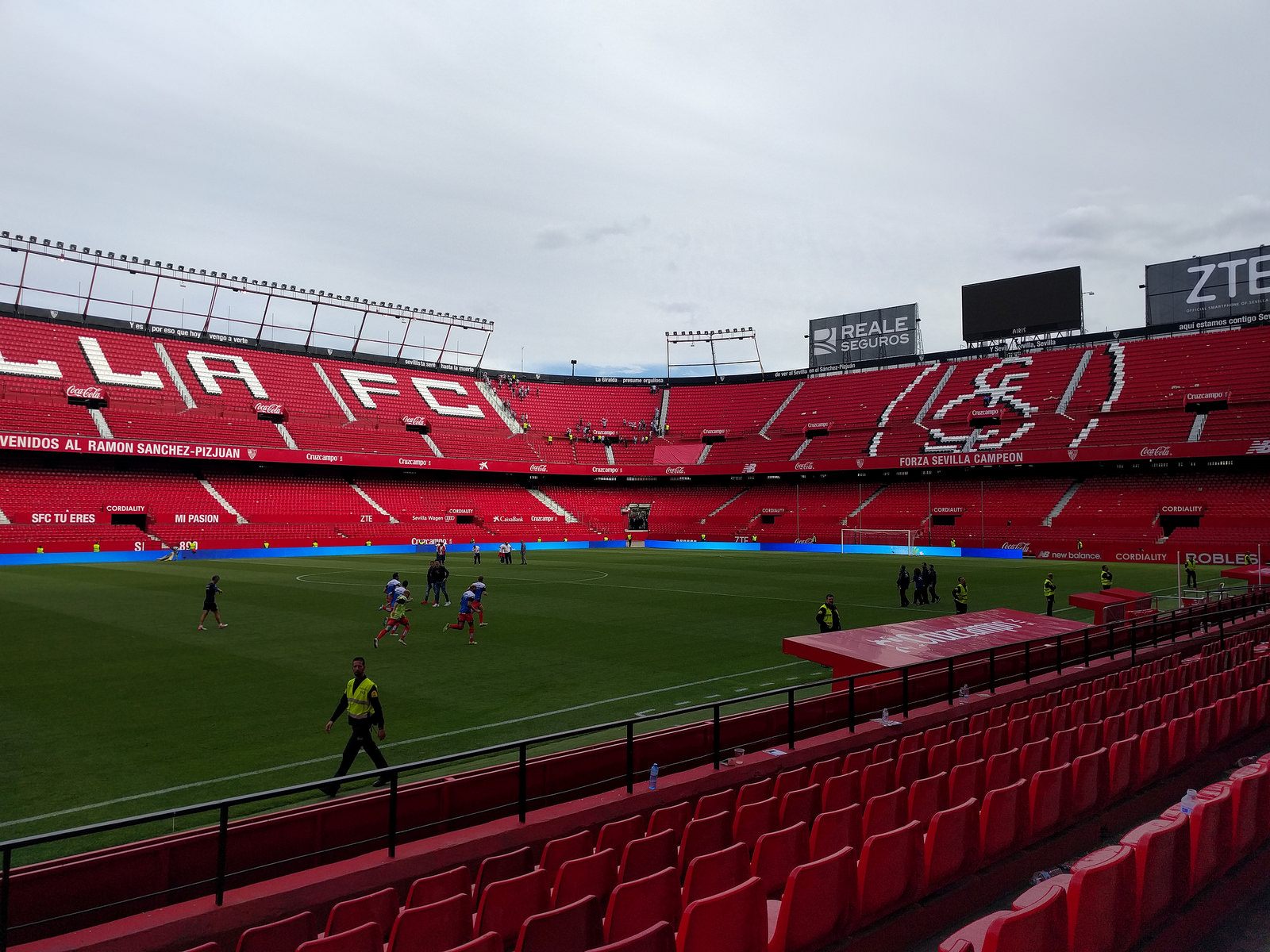
Estadio Ramón Sánchez Pizjuán (La Bombonera de Nervión)
Sevilla's stadium is notably named after Ramon Sanchez-Pizjuan (centre).Sanchez-Pizjuan was born in Seville in 1900, joining Sevilla, but never featuring for the first team.After leaving football.

La historia detrás del estadio Ramón SánchezPizjuán Sevilla FC
Where is the Ramón Sánchez-Pizjuán? Located very centrally in the heart of the city, it is situated in a perfect position for anyone staying for a short getaway, city breaks or even just for the match itself. Despite being planned long before, the stadium opened in September 1958 and was named in honour of the long-serving president who died.
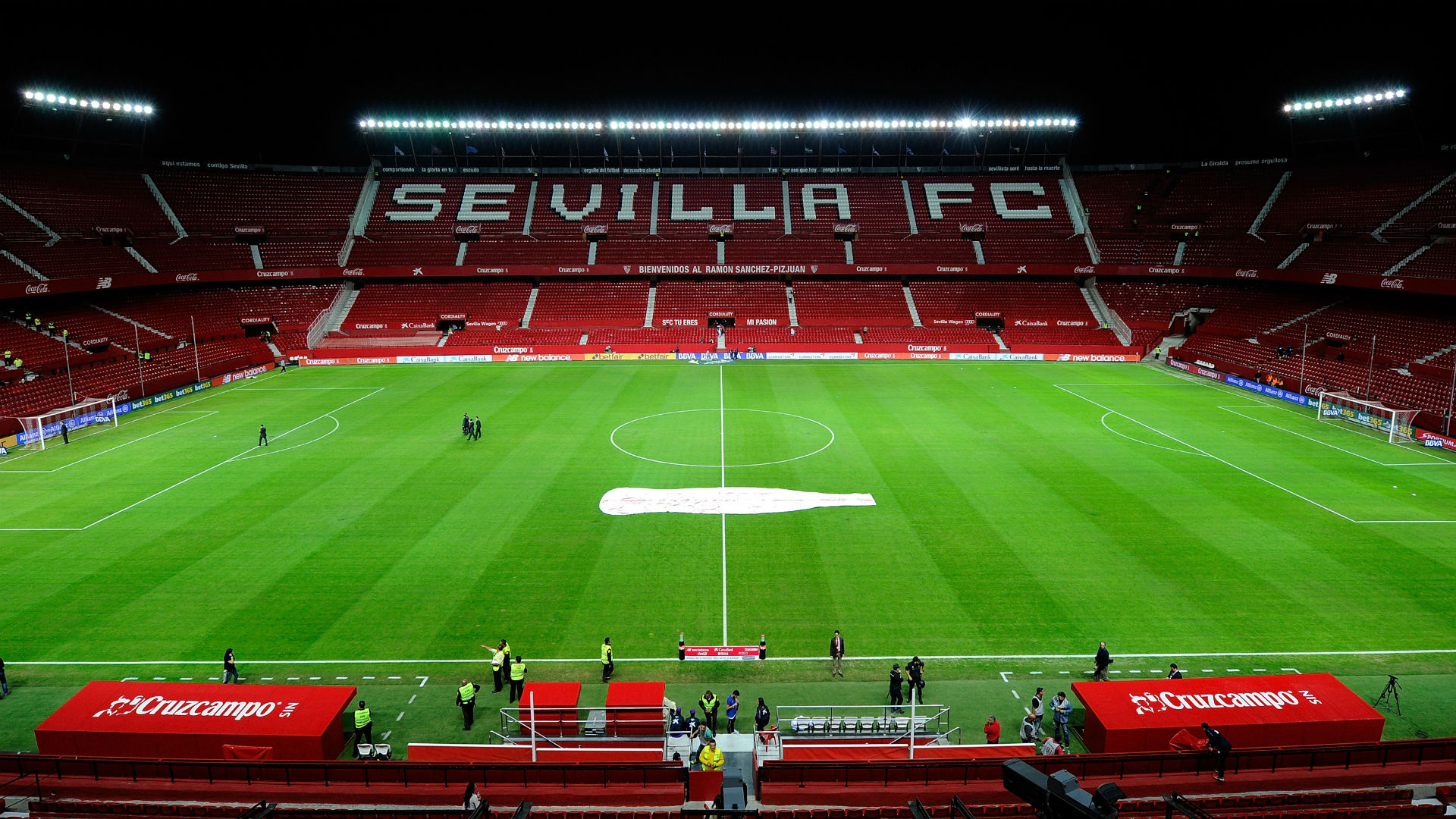
Ramon Sanchez Pizjuan (Sevilla Futbol Club Stadium) Seville Traveller
How to get to the Ramón Sánchez Pizjuán stadium. The stadium is located in the Nervión neighborhood, a residential area not far away from Seville's city center. You can get there by. Bus catching one of the following lines: B3, B4, C1, C2, 5, 22, 28, 29, 32, 52 and EA (airport bus). Have a look at the Tussam bus map for more information.
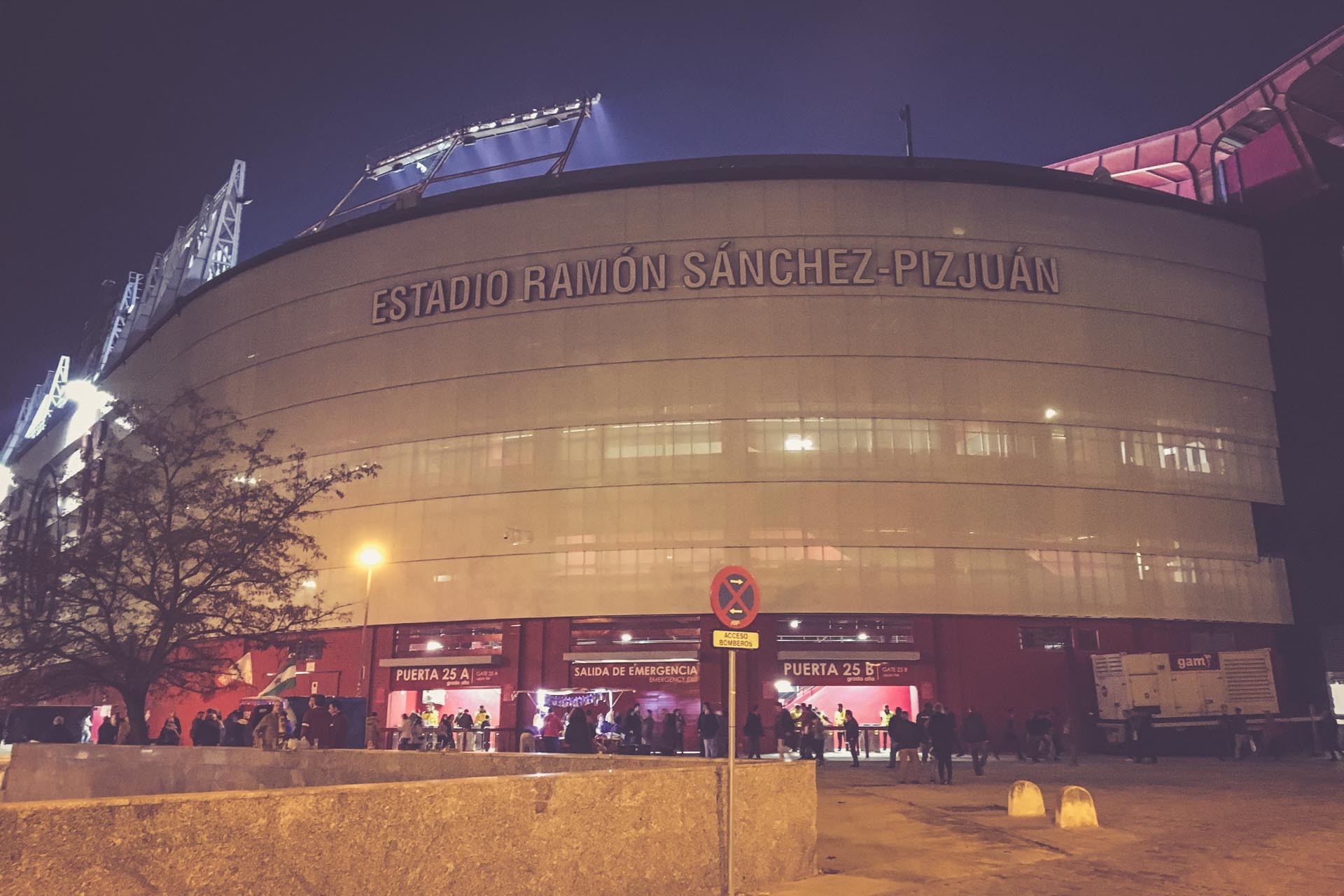
Andalusische FlutlichtNacht im Estadio Ramón SánchezPizjuán FLUTLICHTFIEBER
The works associated with this development are due to be completed in 2025. It turns out that another Spanish arena is already in line for an upgrade. Work to upgrade Estadio Ramón Sánchez Pizjuán is due to begin in 2026. As a reminder - in spring 2022, Sevilla FC commissioned a study on the development of the facility's infrastructure.
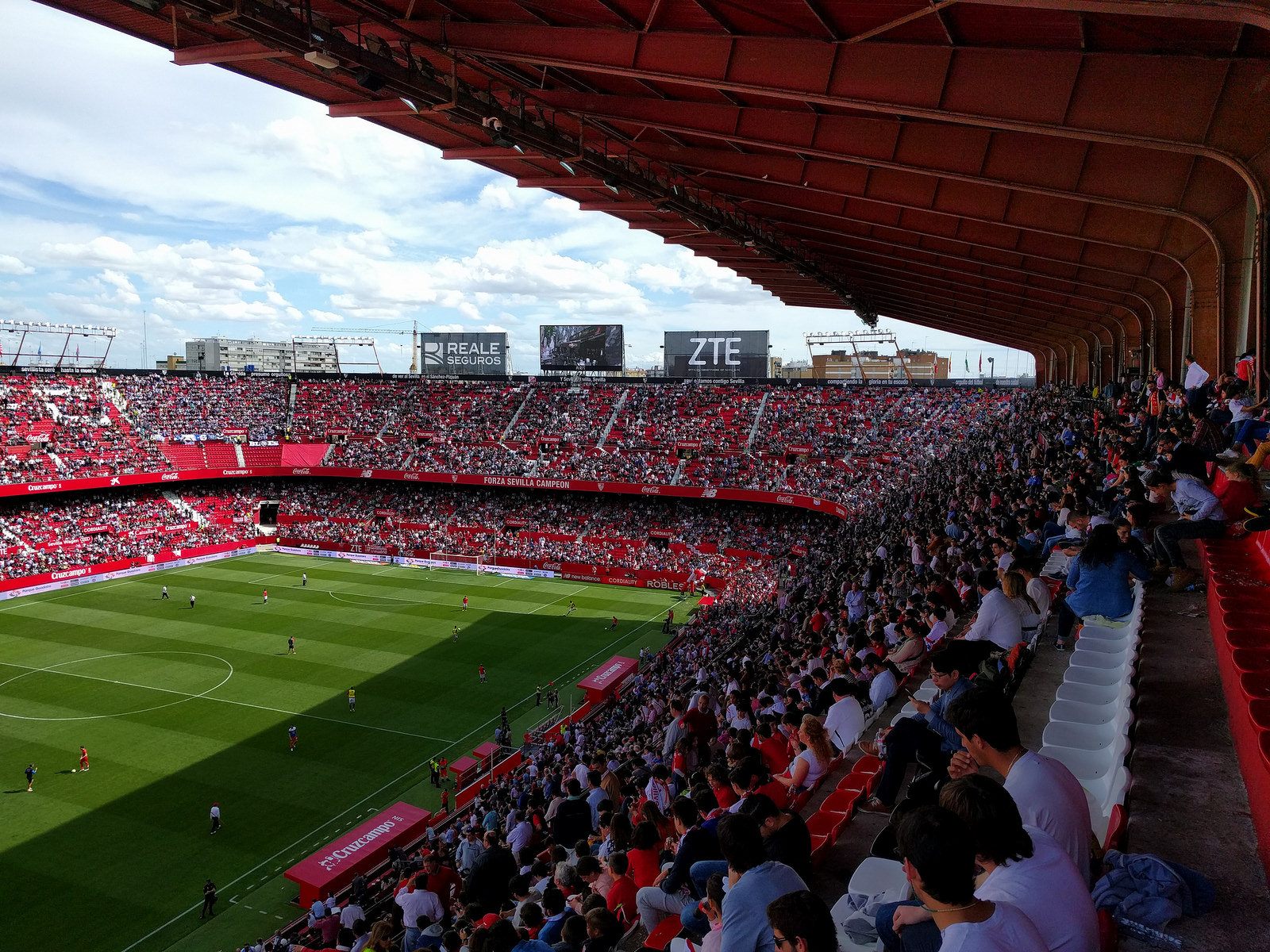
Estadio Ramón Sánchez Pizjuán (La Bombonera de Nervión)
The most centrally located stadium in Seville bears the name of long-ruling president R. S. Pizjuan, who began efforts to build the stadium back in 1937, when he acquired the land.. now Sevilla FC present the future exterior of Estadio Ramon Sanchez Pizjuan. This time next year the stadium will be entirely changed. 29.07.2015 10+ Ranking.

Vídeo Panorámico 360 grados del interior Ramón Sánchez Pizjuán Vamos Mi Sevilla 5.0
They played in Estadio de Nervión for thirty years from 1928 until Estadio Ramón Sánchez Pizjuán opened in 1958. Planning for the new ground actually began as early as 1937 when land was bought near to the Estadio de Nervión. Building didn't begin until 1954, however and the stadium took four years to complete.

El Ramón SánchezPizjuán será una de las sedes alternativas para el Real de Madrid
Name of stadium: Ramón Sánchez-Pizjuán: Total capacity: 43.883: 43.883 at international matches: Seats: 43.883: Built: 1958: Undersoil heating: No: Running track:
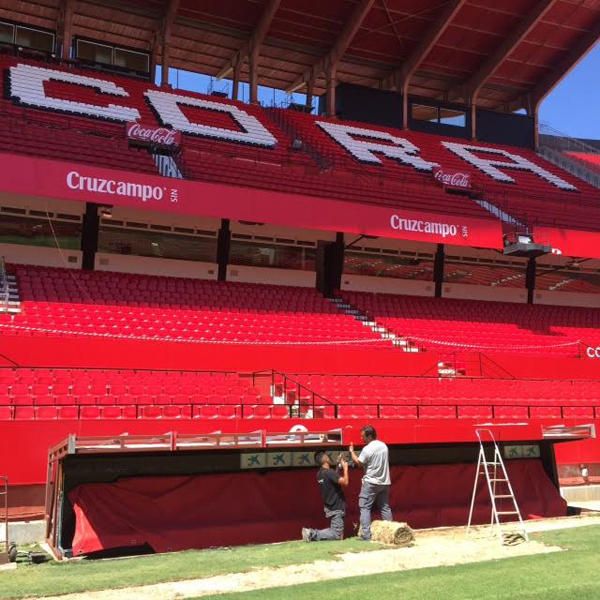
Así es el nuevo Ramón Sánchez Pizjuán
Ramon Sanchez-Pizjuan. The Ramón Sánchez Pizjuán Stadium is a football stadium in Seville, Spain. It is the home stadium of Sevilla Fútbol Club, and is named after the club's former president, Ramón Sánchez Pizjuán, who served Sevilla for seventeen years in the early 20th century and helped pioneer the building of the ground..
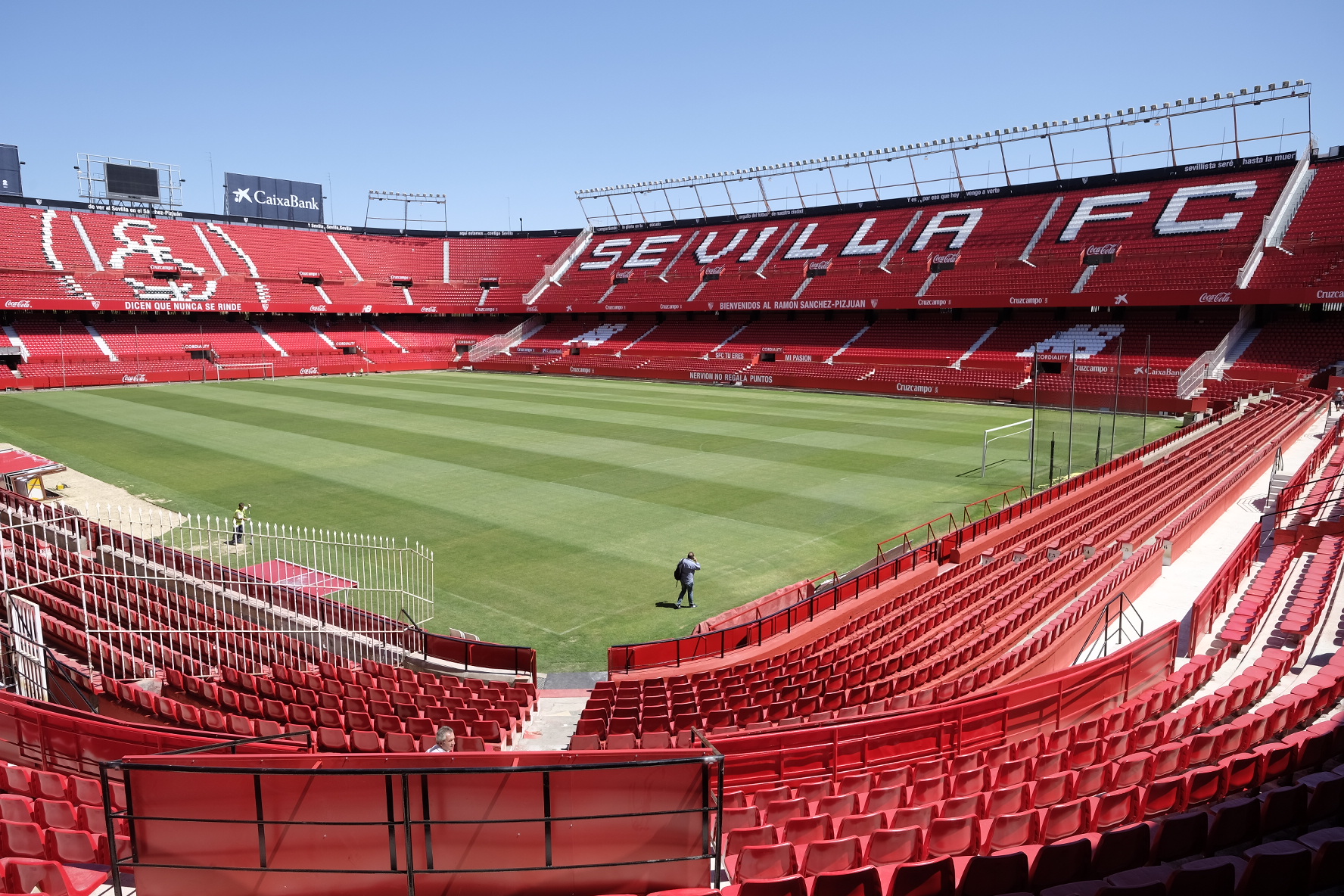
EL NUEVO RAMÓN SÁNCHEZPIZJUÁN Sevilla FC
The 3-0 loss to Getafe at the Ramon Sanchez-Pizjuan on Saturday ended Diego Alonso's ruthless two-month reign as Sevilla coach. The Uruguayan was let go a little over an hour after the final whistle.
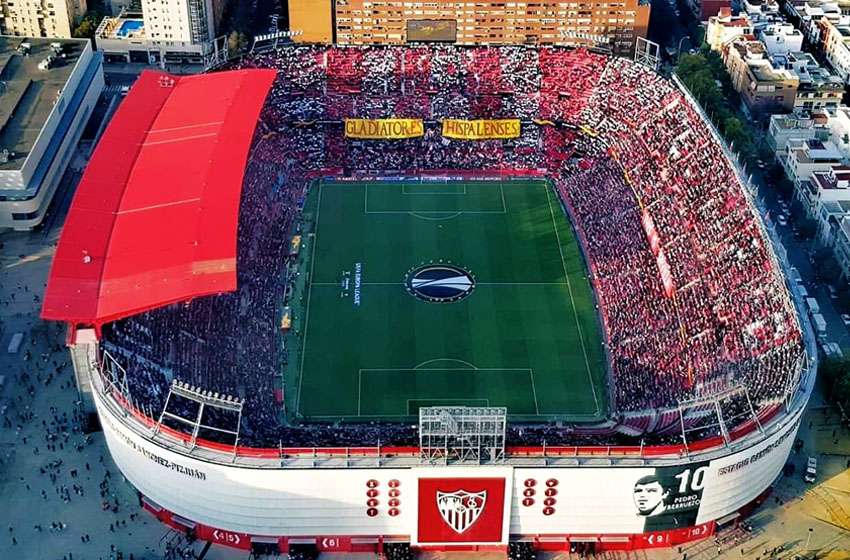
Ramón Sánchez Pizjuán Stadium History, Capacity, Events & Significance
The Sánchez-Pizjuán has become the lucky charm for the Spanish national football team. The national side haven't lost a single one of the 22 games played there (19 wins and 3 draws). It hosted the European Cup final in 1986 which saw Steaua Bucharest FC face FC Barcelona and which was won by the Romanian team. Until the 3rd of May of this.